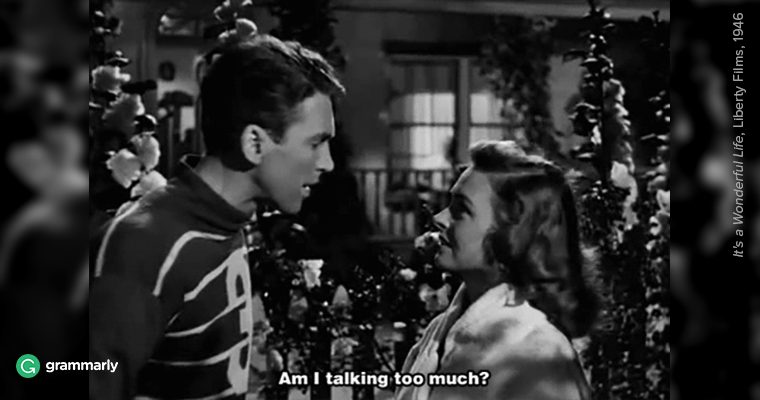- Verbiage is a noun that means a plethora of words—usually unwelcome ones.
- Verbiage can also be used to refer to someone’s style or manner of speaking.
- Verbage is a non-standard word, possibly a portmanteau of the words verbiage and garbage. Its meaning is close to the meaning of verbiage and carries a negative connotation.
There are examples throughout the world of people trying to use as few words as possible to convey the most meaning. Haiku poetry, for example, is based on a very strict structure that allows only seventeen syllables in a poem. The laconic phrase, named after its original practitioners in ancient Sparta, is a way of saying things in an extremely concise and often blunt manner.
But if we take haikus and laconic phrases as representative of one end of the spectrum of language use—the minimalist end—what would find at the other end of the spectrum? Well, whatever it is, it’s likely it would be called verbiage.

Verbiage Definition
Verbiage, pronounced VER-be-ij, is a noun that comes from the Middle French word verbier, which meant “to chatter.” The most common meaning of the word verbiage is an unnecessary abundance of words. If you’ve ever heard someone speak for a long time without actually saying anything worthwhile, that’s what people would call verbiage. When used in this sense, verbiage shares the meaning of “wordiness,” “verbosity,”and “prolixity.”
However, there’s another way you could use verbiage, without the negative implication. Verbiage can also refer to a general style of speaking or composing sentences—just the way people use their words.
Verbiage vs. Verbage
The origin of the word verbage is somewhat unclear. You can sometimes find it cited as an alternate spelling of verbiage, but it’s a rare one. You can also find sources claiming that the word was created by fusing verbiage with garbage. Either way, it has the same meaning as verbiage, or at least the meaning with the negative connotation. However, there are so many words in the English language you could use to describe a case of verbal diarrhea that you might not even need to use verbage. Especially because it’s a non-standard word, at best.
How to Use Verbiage
As you can see, this difference of meanings, with one being negative and the other being neutral, can sometimes make the use of verbiage risky. If you use the word verbiage to comment on someone’s speech, she may be offended even if you meant it in the neutral sense—it appears that many people are familiar with only the negative one. As it’s generally better to be sure than sorry, it might be better to use verbiage when its negative meaning would be the one that’s applicable. And when you choose to use verbiage, remember that saying something is “excessive verbiage” is redundant because verbiage already implies excess.
Verbiage in a Sentence
Blogging, as we have previously noted, affords opportunities as well as pitfalls for researchers both established and in training. But how do readers use this Internet verbiage? —Science
In its blending of verbiage and violence, its deft manipulation of tension, its blurring of the line between slapstick and shock, and its intricate weave of allusions to obscure and canonical films of the past, “Hateful Eight” is—what’s the term I’m looking for?—a Quentin Tarantino movie. —The New York Times
We gather our ideas to put them into words, and if our verbiage is not empty or hollow, we might get these ideas across to a listener, who can unpack our words to extract their content. —Steven Pinker, The Stuff of Thought: Language as a Window into Human Nature
Some of the most important verbiage in the 22-page decision is lurking in Footnote 6, where the court says FCA plaintiffs must state their claims with “plausibility and particularity.” —Forbes






